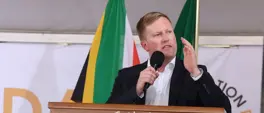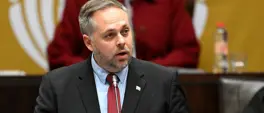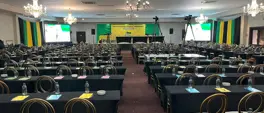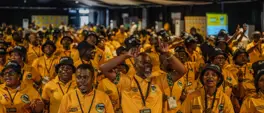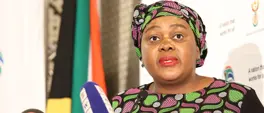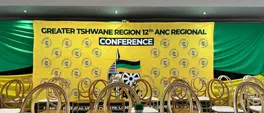MONDE NDLOVU: The next 30 years - Black leadership must help build SA's roadmap
Monde Ndlovu
26 October 2023 | 10:00As the 30-year mark of our democracy beckons, we need an honest and open discourse about where we are and where we need to go - and black intellectuals need to keep their hands in the furnace of debate, writes Monde Ndlovu.
With every changing season in both life and society, the environment calls on us to adapt and respond to a host of situations.
The Black Management Forum (BMF) embodies this, having been part of the evolving thought process on Black Economic Empowerment (BEE) over the years. We are currently living in a time that calls for another wave of thinking in an attempt to usher in justice, equity, and fairness in our country.
At a BMF conference 20 years ago, Lot Ndlovu pointed to failures within black thought leadership.
“There is a failure by black business to think through the issues and provide the necessary leadership around how this economy ought to be transformed to include the majority of the people. The failure by black business to do this is the one threat that stands in the way of sustaining our democracy. And we, as the BMF, are at the centre of that.”
Ndlovu’s stern words still hold true today.
We need more leadership around transformation issues, rather than less of it. His other point is that including the majority of the country in the economy should be everyone’s business, and not just a matter for the few to consider.
Amongst these is black leadership taking centre stage in demonstrating clarity of mind and purpose in how we want our country to look, and how we will go about doing this.
Former President Mbeki during the same conference said: “There is a level of timidity among black intellectuals that is extremely unhealthy. They seem to have excluded themselves from public discussion about where South Africa is today, and where South Africa should be tomorrow.”
Therefore, as we begin to reflect on 30 years of socio-economic transformation, black intellectuals and black business must demonstrate leadership in how the next 30 years ought to look like, and how we will arrive at that destination.
The BMF will be entering its annual policy conference in November, at a time when the country is experiencing many social and economic storms, and in particular, the slow pace of transformation.
Next year, the country will also enter its general election, to chart the course for the next 30 years of democracy.
From a BMF point of view, reflecting on the 30-year journey of transformation is timely. Some consider the 30-year mark as an end to a generation, which also signals a new generation of leaders and thinkers who need to reflect deeply on the gains and losses experienced by our people in the last 30 years.
Therefore, the BMF will focus its policy conference on the task given to the organisation by President Cyril Ramaphosa, to re-engage South Africa’s Broad-Based Black Economic Empowerment (B-BBEE) drive, and to make clear recommendations on the way forward.
As the 30-year mark of our democracy beckons, we need an honest and open discourse about where we are and where we need to go. The next 30 years of transformation require us all to commit to driving change not only through professional organisations, but also through our personal influence in business and society.
As Ndlovu and Mbeki asserted, black leadership and black intellectuals need to keep their hands in the furnace of debate and not shy away from providing the necessary leadership.
But most importantly, we need to provide a clear roadmap to where we are going as a society, country, and people.
Monde Ndlovu is a consultant at Outlier Leadership, and a BMF committee member for policy, and research.
Get the whole picture 💡
Take a look at the topic timeline for all related articles.
Trending News
More in Opinion

12 December 2025 15:34
CHARLES MATSEKE | The Republic of commissions arrives at its point of no return

12 December 2025 14:15
REBONE TAU | Ekurhuleni needs bold, decisive leaders to reverse years of capture

12 December 2025 05:13
MANDY WIENER | Searching for a superhero with a spine of steel: Why the position of NDPP matters so much








